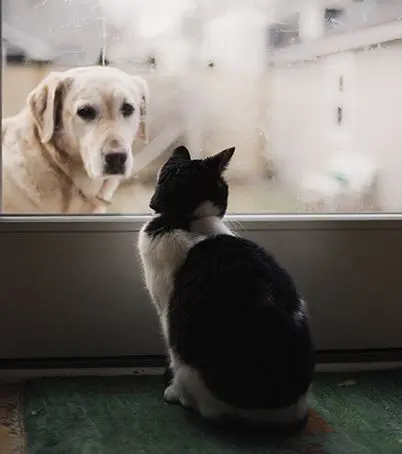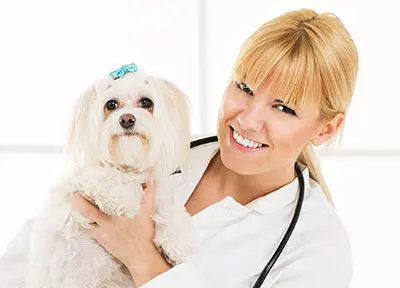At Pet Doctor in Rockwall, TX, we often remind pet parents that pet dental health plays a major role in overall wellness. Gum disease can quietly affect the heart, kidneys, and liver—and all too often, it sneaks up on both dogs and cats. Fortunately, with regular checkups, dental cleaning for dogs and cats, and some home care habits, your furry bestie can keep flashing that toothy grin well into her golden years.
Whether you’re brushing your pet’s teeth at home or wondering if bad breath means something serious, our veterinary clinic is here to guide you. In Rockwall, TX, our vets see firsthand how dental neglect can lead to serious illness—and how simple, proactive care can help pets thrive.
Why Is Pet Dental Health So Important?
Dental disease is the number one health problem affecting adult dogs and cats. According to the American Veterinary Medical Association, more than 80% of dogs and 70% of cats have some form of dental disease by age three. That includes gingivitis, tartar buildup, and even tooth loss.
The Hidden Dangers of Dental Disease
When bacteria build up in your pet’s mouth, it doesn’t just stay there. Over time, it can enter the bloodstream and travel to:
- The heart, leading to inflammation of the heart lining (endocarditis)
- The kidneys, resulting in infection and chronic damage
- The liver, causing inflammation and reduced function
These conditions can shorten your pet’s life—and make his or her golden years uncomfortable.
Fun Fact: Tiny Yorkies and other small-breed dogs are especially prone to dental disease because their teeth are so close together!
Signs of Dental Disease in Pets
Your furry friend may not let you inspect every molar, but there are some clear red flags to watch for.
Signs of Dental Disease in Pets
- Bad breath (halitosis)
- Drooling more than usual
- Pawing at the mouth
- Swollen or bleeding gums
- Loose or discolored teeth
- Difficulty chewing or dropping food
If your canine companion starts chewing only on one side or your feline pal suddenly refuses crunchy kibble, it could be a sign of discomfort or pain.
Pro Tip: Many pets continue eating even when their mouths hurt, so don’t rely on appetite alone to tell you something’s wrong.
How We Treat and Prevent Dental Disease
At Pet Doctor, we take a comprehensive approach to pet dental health. It starts with prevention but includes professional cleanings and care for existing issues.
Dental Cleaning for Dogs and Cats
Unlike people, pets need general anesthesia for effective dental cleanings. This allows us to:
- Thoroughly clean below the gumline
- Remove tartar and plaque
- Polish the teeth
- Take dental X-rays
- Identify and extract diseased teeth if needed
Dental cleanings should be done annually for many adult pets, or more often if your veterinarian recommends it. Think of it like their “deep clean” to supplement at-home care.
Brushing Your Pet’s Teeth at Home
The gold standard of prevention? Daily brushing. While it might sound daunting, many pets learn to enjoy the process (especially when flavored toothpaste is involved).
Tips for Brushing Your Pet’s Teeth at Home:
- Start slowly with short sessions and incorporate praise
- Use pet-safe toothpaste (never human toothpaste!)
- Choose a finger brush or soft-bristle pet toothbrush
- Focus on the outside surfaces of the teeth
- Try after meals or during cuddle time
Even brushing a few times a week can reduce plaque significantly.
Other Dental Care Options
If brushing isn’t realistic, ask your vet about alternatives such as:
- Dental chews and water additives
- Prescription dental diets
- Dental wipes
- Oral sprays
Not all products are created equal—look for the VOHC (Veterinary Oral Health Council) seal for ones proven to reduce plaque and tartar.
Special Considerations by Pet Type
Dental Health in Dogs
Your pup’s personality and breed both affect his oral health. Brachycephalic breeds like Bulldogs often have misaligned teeth, making them more prone to buildup. Dogs that love chewing may keep their teeth cleaner—but also risk fractures if they bite on hard items like antlers.
Avoid giving:
- Cooked bones
- Hard nylon toys
Instead, opt for softer chews and supervised play.
Dental Health in Cats
Our feline friends are often sneakier when it comes to pain. One especially painful condition we see in cats is FORLs (Feline Odontoclastic Resorptive Lesions)—a type of tooth decay that happens below the gumline.
Signs include:
- Chattering jaw when eating
- Sudden aversion to food
- Head shaking after chewing
If Fluffy’s once-voracious appetite has vanished, dental discomfort could be the culprit.
FAQ About Pet Dental Health
How often should pets have a dental cleaning?
Most dogs and cats benefit from yearly dental cleanings, but small breeds and senior pets may need them more often. Your veterinarian will advise based on age, breed, and oral exam.
Is anesthesia safe for my pet during a dental cleaning?
Yes, our animal hospital uses modern anesthesia protocols, tailored for safety. We perform pre-anesthetic testing and monitor your pet closely throughout the procedure.
What if my pet won’t let me brush his teeth?
That’s okay! We can recommend other tools and treats that help. Even if brushing isn’t possible, regular checkups and professional cleanings are key.
Is bad breath really a sign of dental disease?
It often is, though not always. While some odor is normal, a strong or sour smell is a sign of bacteria—and a good reason to book a dental checkup.
Visit Our Rockwall, TX Veterinary Clinic for Dental Care
At Pet Doctor, we believe that a healthy mouth means a healthier pet. Our vet clinic in Rockwall, TX offers compassionate, comprehensive dental care to help your furry friend live a longer, happier life. Whether it’s your pup’s first cleaning or your kitty’s routine checkup, we’re here to keep those pearly whites shining bright.
Pet dental health is a crucial part of your pet’s wellness routine. Give your four-legged buddy something to smile about—call us today to schedule a dental exam or cleaning at our pet clinic.
This article is intended for informational use only. Please consult your veterinarian for specific advice, diagnosis, or treatment options tailored to your pet’s needs.






!Social Media Icons